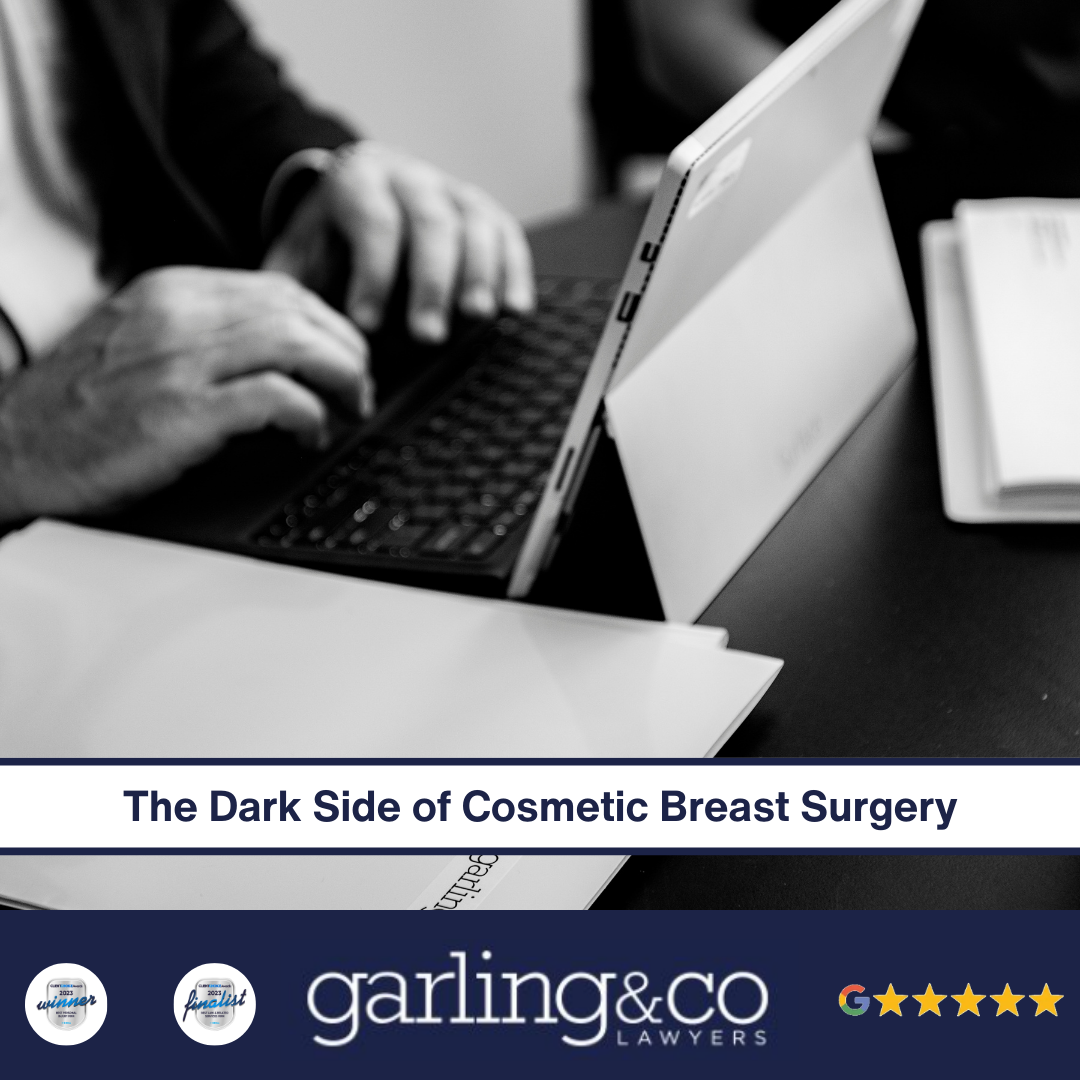
It is no secret that cosmetic breast surgery can be very expensive, which is why many people shop around before deciding where to have their surgery.
While those who undertake breast surgery for cosmetic reasons want the best results, they can often be persuaded to have their breast surgery done at a cosmetic clinic or beauty salon to save on costs. However, prospective patients should be warned that there is a significant difference between the service provided by a plastic surgeon at a hospital, and that of a cosmetic surgeon operating out of a cosmetic clinic or beauty salon.
What is considered a botched breast augmentation?
A botched breast augmentation is generally defined as a surgical procedure that results in unexpected, undesirable, or poor outcomes. These outcomes can range from aesthetic imperfections to severe medical complications. Factors that may contribute to a botched procedure include surgeon error, implant failure, infection, and other unforeseen circumstances.
What are the red flags after breast augmentation?
Red flags following a breast augmentation are often early warning signs of potential or evolving complications. These may include:
- Excessive bleeding or bruising: Some bruising and swelling after breast augmentation are to be expected. However, there should not be active bleeding from the surgical incisions and the bruising and swelling should improve and resolve over time. Persistent swelling or active bleeding from the surgical incision could be a red flag and you should seek medical advice and treatment.
- Fever: If you develop a fever or notice redness around the breasts or warmth, these may be early signs of an evolving infection. You may also notice oozing from the surgical incision or dehiscence (gaping) of the surgical incision. If you notice any of these signs and symptoms, seek medical advice without delay.
- Pain: persistent pain or pain that becomes worse could indicate complications. Some women develop haematomas or seromas after breast surgery. Whilst seromas are not an indication of a botched surgery, they do require treatment, which usually involves aspiration.
- Difficulty breathing or swallowing: These symptoms could be associated with life-threatening complication and require immediate medical attention.
Sudden changes in breast appearance: If you notice increased swelling, hardening, or discoloration of the breast, you should immediately seek medical advice.
How do I know if my breast augmentation was botched?
Most, if not all surgeries, carry a risk of complications. While some people consider breast augmentation to be a cosmetic procedure, it remains a surgical procedure that requires hospital admission and anaesthesia. Breast augmentation, like other surgical procedures, is associated with a risk of complications including infection and delayed wound healing.
It is essential that you have a comprehensive discussion with your surgeon prior to undergoing breast augmentation or any other surgical procedure. Your surgeon should be able to explain to you all of the potential risks and complications of a breast augmentation. You should ensure that you understand those risks and the treatments available in the event that those risks and complications arise. You should also clearly communicate your expectations and desired outcomes to your surgeon and ensure that your surgeon understands the aesthetic outcome that you desire and is capable of achieving that outcome. Clear communication between you and your surgeon is crucial as beauty standard are subjective. Seeking a second opinion before committing to surgery is also sensible.
Determining whether a breast augmentation is botched does not solely depend on a patient not being satisfied with the aesthetic appearance of the breasts. It can be difficult to determine if the procedure is botched and this determination often requires medical evaluation. However, it is possible that your breast augmentation was botched and you should seek a second medical opinion if you develop some of the following symptoms after breast augmentation:
- Severe pain or discomfort: Bruising, swelling and pain are to be expected after surgery. However, if the swelling is not improving or becoming worse or the pain is persistent or intense and does not improve over time, this may be an indication that something has gone wrong either during the surgery or afterwards.
- Visible asymmetry: It is not uncommon to have asymmetry immediately after breast augmentation due to swelling. If asymmetry persists after the swelling resolves or the breasts are not of the same, it is possible that the procedure was botched. Sometimes, the size of the breasts is even but the nipples are not positioned symmetrically.
- Infection: Infection is usually an inherent risk of surgery, but infection could be difficult to treat due to the tissue composition of the breast and breast tissue could become necrotic due to poor blood supply. Watch for signs of infection such as redness, swelling, warmth, or fluid oozing from your surgical incision. If you develop any of those symptoms or suspect an infection, present to your doctor as soon as possible for treatment. If seeing your doctor is not possible, present to your local hospital for medical evaluation. Timely and appropriate treatment of infection is associated with a better outcome.
- Numbness or loss of sensation: Unusual changes in sensation around the breast or the nipple may be an indication of nerve injury during surgery.
Difficulty breathing or swallowing: In severe cases, these symptoms may indicate serious complications. You should present to your local hospital without delay if you develop difficulty breathing or swallowing after breast augmentation, or any surgery.
There is a big difference between a plastic surgeon and a cosmetic surgeon
While plastic surgeons will charge more for their services and will usually operate in a Hospital. They will likely have had years of training and experience in the field of plastic surgery and know what they are doing. Conversely, cosmetic surgeons will often be found at cosmetic clinics and beauty salons. Cosmetic surgeons have a basic medical degree and will not have completed any specific surgical training or fellowship. They are not experts in breast surgery.
The chance of experiencing a botched boob job is significantly lessened if your surgery is undertaken by a plastic surgeon as they have the knowledge, skills, and expertise to perform the surgery in a competent manner. Your risk of a botched boob job is significantly higher if you have breast surgery completed by a cosmetic surgeon who has limited knowledge and experience, and will likely be operating in a less hygienic environment with lacking infection control.
Cosmetic surgeons are also likely to be insufficiently equipped to deal with medical emergencies which can be disastrous for patients if emergencies do occur during their surgery. Just last year a woman died after undergoing a botched boob job at a beauty salon in Sydney. The “cosmetic surgeon” undertaking the surgery had no medical qualifications and was subsequently criminally charged with recklessly inflicting grievous bodily harm and using poison to endanger life. This case goes to show how dangerous cosmetic surgery can be when undertaken by underqualified medical professionals or those without the necessary medical training and qualifications. There has been a significant push from the Medical Board of Australia, the Health Care Complaints commission, and plastic surgeons alike to regulate the cosmetic profession. It is hoped that legislation will be amended to only allow invasive surgeries to be performed by qualified surgeons in hospitals and in the presence of anaesthesiologists.
If you believe you have had a botched boob job or have experienced negligent treatment by a cosmetic surgeon or other health professional, please contact us. We will run your case on a no win no fee basis so that you can concentrate on getting better.
It is important to remember that these are general guidelines, and individual experiences may vary. If you suspect any complications following a breast augmentation, seeking prompt medical attention is crucial. Additionally, consulting with a legal professional experienced in medical negligence may be advisable to assess potential legal options.












